Smoothing Wrinkles
Editors note: From September 13 to 21, 2015, just a few days before Chinese President Xi Jinpings state visit to the United States, Wang Wen, executive director of Chongyang Institute for Financial Studies, Renmin University of China, was invited to visit New York City and Washington D.C. In an interview with Guancha.com, Wang shared his deep analysis on topics related to his stay there, including American think tanks perspectives on China, points of contention between the two superpowers, and avenues to improve the bilateral relationship.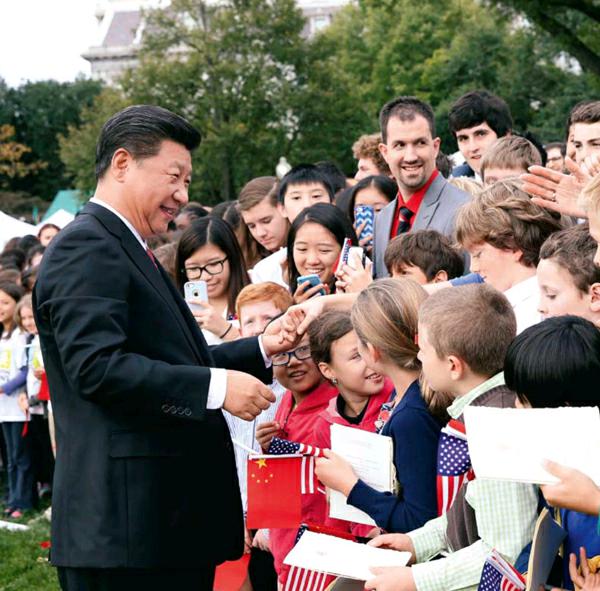
What was your deepest impression from this American trip?
Wang Wen: My schedule was pretty tight during my 10-day stay in the U.S. I met with over 100 people from all walks of life including 10 political VIPs, attended some 20 seminars and private sessions, and communicated face-to-face with heads of more than 30 think tanks. Such a heavy contact in such a short period of time reflects how a Chinese think tank delegation was welcomed and valued, through which the U.S. hopes to communicate their latest attitudes about China.
Generally speaking, both China and the United States are in bad need of cooperation and are dependent on each other. Nevertheless, American think tanks are apprehensive about the rise of China—unprecedentedly concerned, yet unable to do anything about it. Despite the fact that the partial recovery of American economy has helped people regain confidence, they still cling to the divergences separating the two countries, hoping China will yield, but they dont dare push too hard. Americans are all tangled up. So I was deeply impressed.
Talking with American scholars from the think tanks, the array of topics, as it were, was both “wide” and “narrow.” By“wide,” the topics ranged from international order to Sino-U.S. economic and trade relations, Chinas economic reform, climate change, cyber security, capital market access and fluctuation, bilateral investment treaty, and topics on the South China Sea. By“narrow,” almost all think tanks talked about subjects within this array. It proves the dialectical thinking of the Sino-U.S. relations, complicated yet simple: It appears that there are many issues to address, which are actually relatively concentrated. Unlike difficult miscellaneous diseases, these issues can be solved but need a joint, long-term effort.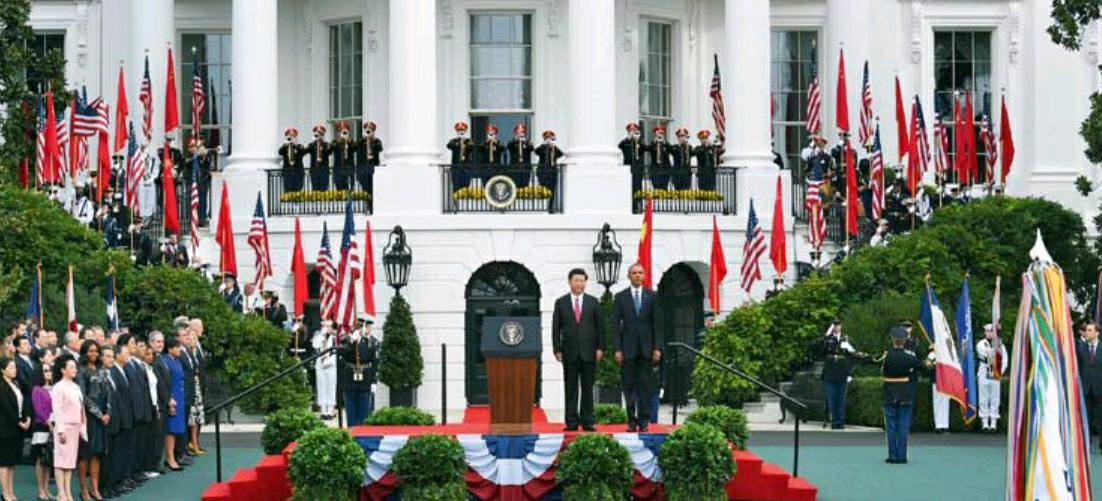
What was the most heated dispute?
Wang Wen: The many divergences are the natural outcome of different angles and ways of thinking between the two sides: Chinese scholars in our think tanks prefer looking from a macroscopic perspective and discussing guidelines for the long run, while analysts in the United States are more willing to look at things at face value and tackle concrete issues as they present.
For example, Chinese think tanks want their American counterparts to wholly accept the brand-new idea of a “new model of majorcountry relations,” featuring “no-conflict, non-confrontation, mutual respect, and win-win cooperation.” But American think tanks find it hard to even define what “mutual respect” actually entails.
When it comes to cyber security, Chinese scholars consider it an issue for both sides requiring joint efforts to fight internet crime, while American scholars insist that the Chinese government overlooks network attacks against the United States.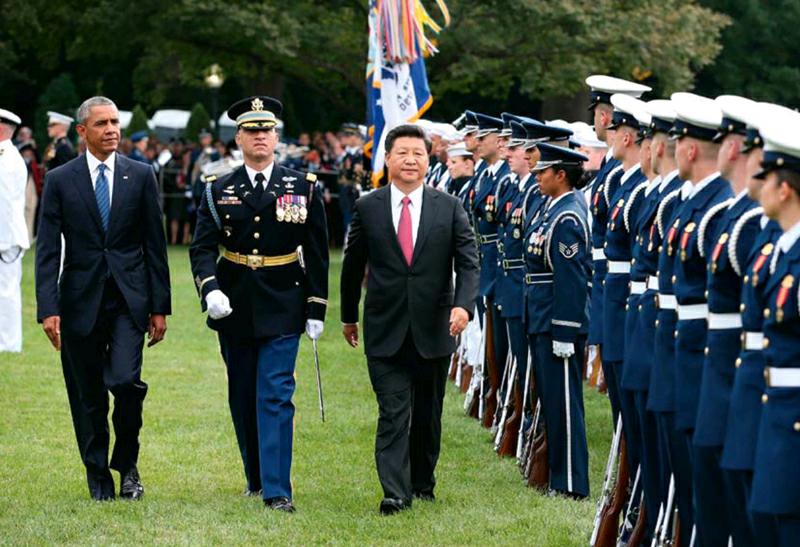
American scholars criticize China for its economic downturn, which has led to depression of the commercial environment, and complain that its NGO law, which is about to pass, indicates that the country doesnt want to open its door wider to the outside world.
Such divergences are caused by the people making the rules. China grows stronger, but is not yet strong enough; the United States seems to be declining, but remains solid. And now both countries are playing games with each other. Games cannot be played well without cooperation and competition, which poses challenges for thinkers and diplomats from both sides.
President Xis itinerary was heavily focused on cooperation in non-traditional security related to economics and cyber security. However, the preceding interviews and analysis seemed stacked against China. What do you think?
Wang Wen: When I was talking publicly with Washington and people from all walks of life in the U.S., most people seemed to believe that Washington should use Xis visit to solve specific problems. However, when I talked to a senior official in private, he said that such voices are merely one side of American public opinion, which is amplified to place pressure on Americas China policies.”
As far as I know, people in financial and trade circles in New York seem most concerned about questions like “Why doesnt the United States join the AIIB?” and “Why doesnt it want China to join TPP?”
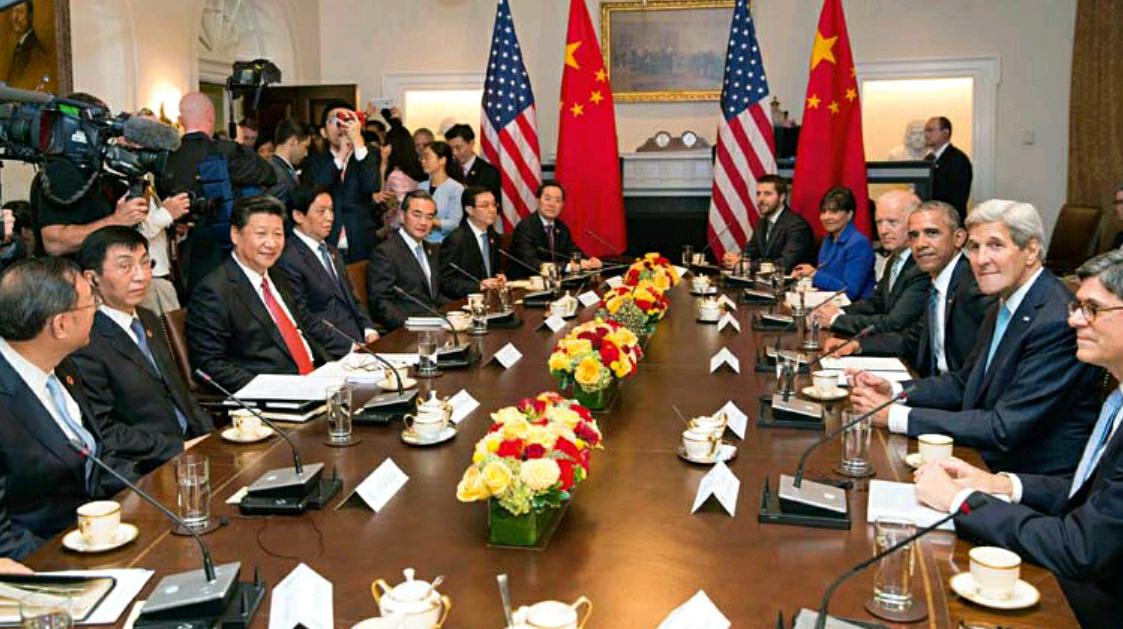
Since last February when the plans for President Xis state visit to the United States were announced, China and the U.S. have already engaged in multiple dialogues and communications. What pragmatic role did the preceding coordination play in deepening understanding?
Wang Wen: The four-decade Sino-U.S. relationship has endured ups and downs, which were handled by mechanisms involving cooperation and communication, laying a concrete foundation for avoiding conflict. A total of 96 dialogue and cooperation mechanisms at different levels have been established between the two countries, including reciprocal visits and hotlines between state leaders, regular exchange between Chinas National Peoples Congress and U.S.s House of Representatives, China-U.S. Strategic and Economic Dialogue, and China-U.S. Joint Economic Committee, to name a few only. This is all in addition to regular communication between think tanks.
In 2015, both governments confirmed and publicized Xis U.S. visit seven months ahead, evidencing the weight they put on bilateral relations. Since the announcement, both countries have seen stable operation of their communication mechanisms. For instance, during the Shangri-La Dialogue in May, their tone was positive on the issue of the South China Sea, and fruitful results were also achieved in terms of economic cooperation and people-to-people communication during the Sino-U.S. Strategic and Economic Dialogue in June, a warm lead-up to the impending state visit by President Xi.
Indeed, it will take some time for the United States to come to terms with the fact that China will share more global responsibility as a major power. China is learning and taking appropriate responsibility and meeting obligations. Both countries are learning to grow together.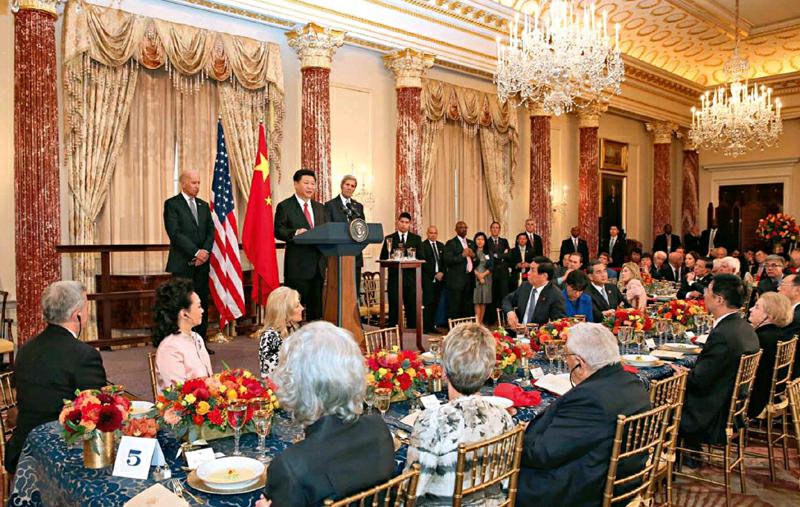
What do you think of the saying, “China is really outperforming the United States comprehensively?”
Wang Wen: Calculating purchasing power parity, in 2014, both IMF and World Bank made that declaration. However, China is way behind in terms of strengths, militarily and financially.
Of course, surpassing the U.S. has never been the target of Chinas development, which is supported by the Chinese presidents assertion that “the peoples aspirations for a better life are our goal.”
The key to indicators of the actual respective strengths of China and the United States are the people.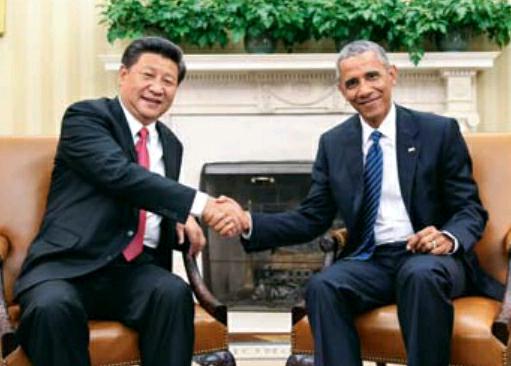
China Pictorial2015年10期
